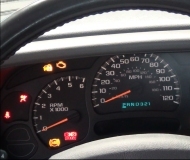I have a 1999 chevy Malibu 3.1L V6
For the past year it has been having issues while starting up, it only happens sometimes but when I try to turn the engine over all my dash lights will flicker, and the gages and tachometer flip up and down violently then the car dies, sometimes I can try to crank it for 5 minutes before it turns over and sometimes it will turn over on the first or second try, this started out as only an issue when trying to start the car, but now it happens while driving, ill be driving along (doesnt matter what speed) and the dash lights will flicker then the car will just die while im driving, it seems that everytime I change a part the problem is fixed for a week then returns,
I have had the fuel pump and filter changed at the advice of a mechanic, that worked for a few days, I changed the pcv valve and hose and made sure theres no vaccum leaks, that seemed to fix it for a few days, I cleans the mass airflow sensor which didnt do anything, then I recently changed the camshaft position sensor becuase of a code on my obd2, when I changed it the camshaft position sensor was frayed and looked like it was burned, after changing it the car ran fine for weeks, but last week I just started having the same problem again, yesterday I siliconed all the vacuum connections to make sure there was a tight seal, im womdering if I have missed a vaccum hose somwhere or if anyone has had this issue and how do I fix it, just today I got the p0341 code again ( camshaft position sensor). Could that cause these problems? Other than that the only codes I get once in a while are p0113 and p0442, any of these likely to cause this issue?
Thanks
Thursday, April 30th, 2015 AT 12:40 AM




